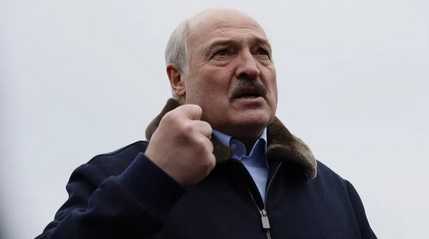
Feb 28 (Reuters) - About 800 people were arrested as Belarus voted to ditch its non-nuclear status in a referendum that raises the stakes at a time when the country has become a staging ground for the Russian invasion of Ukraine, the government said on Monday.
The vote sparked the biggest protests in months as thousands took to the streets in Belarus, where President Alexander Lukashenko has imposed a sweeping crackdown on dissent after a contested election challenged his grip on power in 2020.
The vote to change the constitution, passed by 65% according to official data, could see nuclear weapons on Belarusian soil for the first time since the country gave them up after the fall of the Soviet Union.
It comes at a time when Lukashenko has fallen in line behind Russian President Vladimir Putin's military assault on Ukraine after earlier playing an intermediary role between the two neighbours.
"Despite the numerous calls from destructive Telegram channels to destabilize the situation, which were spread by citizens outside the country, mass protests did not happen. Police officers were focused on prompt response and suppression of provocations," the interior ministry said.
The new constitution also gives powers to an assembly created by Lukashenko and populated by party loyalists, officials and pro-government activists, and gives lifetime immunity from prosecution to the president if he leaves office.
On Sunday, speaking at a polling station, Lukashenko said that he could ask Russia to return nuclear weapons to Belarus.
"If you (the West) transfer nuclear weapons to Poland or Lithuania, to our borders, then I will turn to Putin to return the nuclear weapons that I gave away without any conditions," Lukashenko said.
Lukashenko's rival in the 2020 vote, exiled opposition leader Sviatlana Tsikhanouskaya, had called on Belarusians to use the referendum vote to protest against the war against Ukraine, which Russia calls a "special operation" to disarm Kyiv...




